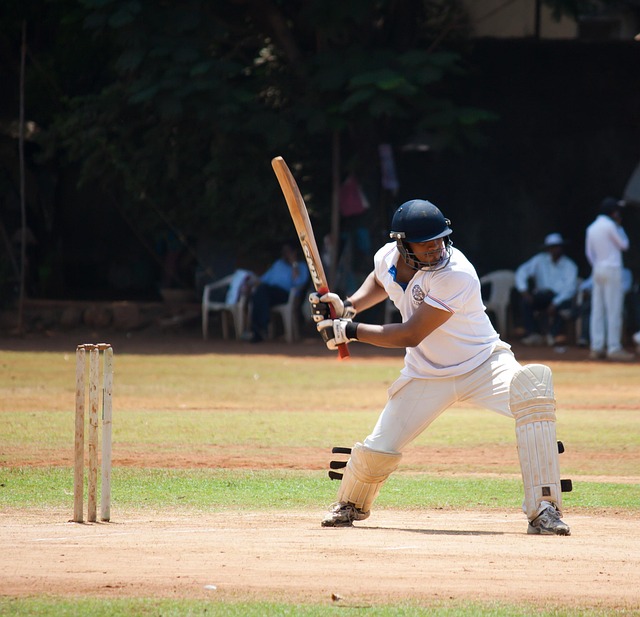Mental toughness, cultivated through team formation techniques and training, is a key differentiator for cricket teams, enhancing performance under pressure. Drills mimicking match scenarios, skill assessments, and post-session debriefings are effective ways to build mental fortitude, focus, confidence, and decision-making skills, crucial for success in high-pressure situations within any cricket team setting.
Can mental toughness training boost cricket performance? This article explores the power of cultivating resilience and focus within the dynamic world of cricket teams. We delve into the science behind mental toughness, its proven effects on athletic success, and practical strategies for coaches and players to integrate this game-changing approach into their practice routines. Discover how strengthening mental fortitude can elevate cricket skills and drive team victories.
- Understanding Mental Toughness in Cricket Teams
- The Science Behind Mental Training Effects
- Strategies to Integrate Mental Toughness into Cricket Practice
Understanding Mental Toughness in Cricket Teams

In cricket, mental toughness is a critical component that often sets apart successful teams from merely good ones. It’s about cultivating an unwavering mindset, where players face challenges head-on with determination and resilience. For a cricket team, this means navigating through intense pressure during high-stakes matches while maintaining focus and performance under stress. A mentally tough squad is able to handle the inevitable ups and downs of the game, quickly recover from setbacks, and consistently execute strategies despite opposition tactics.
Beyond individual player mental fortitude, effective team formation techniques emphasize collective resilience. Coaches play a pivotal role in fostering this by implementing strategy development exercises that enhance players’ ability to communicate, support, and learn from one another. This collaborative approach not only boosts morale but also improves tactical decision-making during play. For instance, the women’s cricket highlights often showcase teams that demonstrate mental toughness through their unwavering adherence to game plans and adaptability in response to unforeseen circumstances.
The Science Behind Mental Training Effects

Mental toughness training has gained significant traction in sports science, and its potential to enhance athletic performance is well-documented. In the fast-paced and mentally demanding sport of cricket, where players face high-pressure situations regularly, mental training can be a game-changer. The science behind this approach suggests that cultivating mental resilience can lead to improved focus, confidence, and coping strategies during competitive matches.
Cricket equipment guide and game-specific conditioning often include mental preparation techniques to complement physical training. By honing their mental skills, players can enhance their decision-making abilities, especially in quick-fire situations like disputing an opponent’s appeals or navigating complex fielding positions. Leadership roles on the field coaching methods for youth cricket emphasize this aspect, encouraging young athletes to embrace challenges and perform consistently under stress. This approach not only refines their technical skills but also builds mental fortitude, which is crucial for peak performance in any cricket team setting.
Strategies to Integrate Mental Toughness into Cricket Practice

Integrating mental toughness into cricket practice requires strategic planning and consistent effort. Coaches can start by incorporating resilience-building exercises during training sessions, focusing on scenarios that mimic match pressures. For instance, practicing under-pressure batting or fielding drills in simulated game conditions can help players develop mental fortitude.
Additionally, using skill assessment tools to evaluate performance in areas like bowling action mechanics and batting techniques for beginners allows coaches to identify strengths and weaknesses. This data can guide targeted interventions aimed at enhancing mental toughness. Regular debriefings after practice sessions or matches can also foster self-awareness and reflection, encouraging players to learn from their experiences, both positive and negative, within the rules of one-day internationals. Visit us anytime for comprehensive guidance on cricket team development.
Mental toughness training can significantly enhance cricket performance by fostering resilience, focus, and confidence within the team. By understanding and incorporating strategies that build mental strength, cricketers can navigate high-pressure situations, improve decision-making, and ultimately perform at their best consistently. Integrating these techniques into regular practice routines can provide a competitive edge to any cricket team.

Leave a Reply